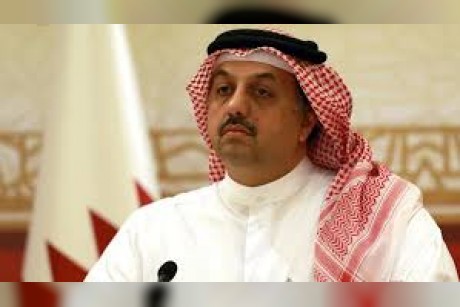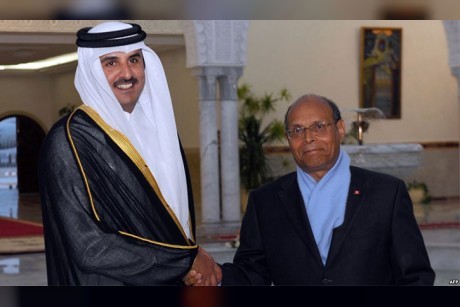While the global power of sport is well documented, few countries have been able to harness its political, economic and social dimensions as well as Qatar. Adorning the jerseys of Europe’s top football teams (soccer to Americans) is a “Qatar Airways” advertisement, while Qatar often trends on the social media pages of the world’s top players, The Media Line reported.
As Major League Soccer sets attendance records in the United States and with the World Cup in Russia this year set to be one of the highest-ever viewed events in television history, football is truly a global game—and Qatar owns a piece of the action.
Over the past decade, Qatar has undertaken what Mahfoud Amara, Lecturer in Sport Policy and Management at Loughborough University, described to The Media Line as “an aggressive campaign of investment in the global business of sport.” State-run Qatar Sports Investments has forked out $1.6 billion since 2012 to mega-franchises such as France’s Paris Saint-Germain FC and FC Barcelona in Spain, a relative pittance compared to the estimated $200 billion Doha will spend on hosting the 2022 World Cup.
Professor Simon Chadwick of the British-based Salford Business School explained to The Media Line that the benefits of Qatar’s strategy have greatly outweighed the seemingly exorbitant financial costs. “Qatar, being a relatively new country, only gaining independence from Britain in 1971, has been in desperate need of a coherent national identity…[and] sport has been hugely important in achieving that goal.”
Dr. Mehran Kamrava, a professor at the Georgetown University campus in Qatar, agrees that football has enabled Doha to brand itself as “a sports capital, which portrays it in a positive light.” As a small country, he noted to The Media Line, “Qatar has to specialize in a particular area, not unlike Switzerland with banking and political neutrality or Singapore and Hong Kong for their services industry.”
Qatari influence has been spread through its football outreach programs and by bringing some of the sporting world’s biggest stars on board. For example, iconic ex-Spanish international, Xavi Hernandez, who now plays for the Qatar-based Al-Saad club, recently released a video encouraging an “end to the blockade against Qatar,” which was implemented by other Gulf states amid a major political row.
In fact, Doha has been under fire over the past year with Saudi Arabia having spearheaded a campaign to boycott the nation over its ties to terrorist groups. Qatar was given a list of thirteen demands to comply with, including, most notably, ending its relationship with the Muslim Brotherhood and shuttering the state-owned Al Jazeera network, which is viewed by its neighbors as a Qatari mouthpiece.
In response, Qatar has invested heavily in public relations campaigns to alter its image, with investment in football being just one of these avenues.
It is a method that Durham University Professor Christopher Davidson has termed “cashbook diplomacy,” which he contends can “generate significant amounts of ‘soft power,’” or positive influence over other nations. The benefits also trickle down to the micro level, with Qatar gaining cultural influence by virtue of its local football footprint. By associating itself with renowned players such as Brazilian superstar Neymar—who was purchased by Qatari-owned PSG for $262 million in June—Doha is trying to “normalize” itself.
“In the eyes of the fan, this puts Qatar on the map as a football-loving country,” Dr. Davidson expounded, “and this is entirely positive.” For a country like Qatar, which has a serious public relations issue given its poor human rights record and connection to Islamist extremists, this type of dividend is priceless.



